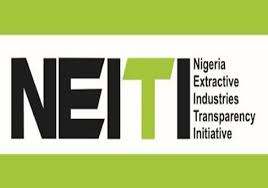[ad_1]
From Uche Usim, Abuja
The Nigeria Extractive Industries Transparency Initiative (NEITI) has called on the Association of Professional Women Engineers (APWEN) to deepen its participation in the extractive industry, as all identified barriers that hitherto restricted their full involvement would be dismantled.
The Executive Secretary of NEITI, Dr Orji Ogbonnaya Orji, gave the assurance in Abuja on Saturday, at the the 5th edition of the Nkechi Isigwe Annual lecture organised by APWEN and themed: “Diversity and Inclusion in the Nigerian Extractive Industry: An Entrepreneur’s perspective”.
He said the goal of NEITI remains to work with women engineers to remove structural barriers that impede women, girls, and other vulnerable groups from participating in sustainable natural resource management and other potential gender impacts of extractive activities.
He urged APWEN to take a serious interest in the NEITI reports and use the contents to demand not just accountability but greater women’s involvement in the sector.
“Except we are involved, united and understand the contents of the reports, we cannot make the desired impact. For instance, out of 102 companies covered by our 2020 solid mineral sector audit report, only 29 provided information on gender and employment. Out of the 5,820 employees, only 14% of women were employed”, he said.
Orji noted that NEITI, in keeping with the EITI’s mandate on gender reporting, was conducting a series of studies on the impact of extractive activities on gender. “One of these studies will soon be presented to the public and focuses on the impact of mining in our communities through the prism of gender inclusivity and impact. This study looked at the employment, ownership, decision making and benefit sharing for women in the mining industry”, he added.
The NEITI boss further stated the last NEITI study threw up a number of issues that should be of interest to APWEN in its efforts to deepen gender inclusivity and diversity in the extractive industry. These issues are; deprivation and marginalization of women in the employment structure and relegating/limiting them to only ancillary service providers such as providing drinks and vending snacks in mining sites; decreased opportunities from land-based livelihoods such as land, water, forests etc. as a result of mining activities; maternity leave for women returning from childbirth or caring for children (They end up struggling to regain employment); the practice of payment of benefits (royalties and compensation) to men “on behalf of families” leaving the women more exposed to hardship; mining in the community leads to prevalent cases of girl-child abuses, girl-child early marriage and girl-child prostitution.
“NEITI has initiated aggressive programmes to pay special attention to generating reliable data and subsequent engagement to improve women’s participation in the mining sector. Our goal is to address the huge gap in gender imbalance in employment, investments, and decision-making in organizations in the extractive sector through empirical evidence based on data and constructive engagements”, he explained.
In her comments, the APWEN President, Elizabeth Eterigho, said efforts would be widened to support women’s endeavours.
large.
“Women empowerment is an integral part and a powerful driver of sustainable socio-economic growth and development of any nation. Empowering women promotes their self-worth and confidence, enables them to make their choices, set their own agenda, gain relevant skills and encourages their right to influence social changes for themselves and others.
“In view of this, this year’s Nkechi Isigwe annual lecture is set to empower women, specifically, widows. For the maiden edition of the empowerment program, three widows from Umuahia in Abia state residing in Abuja shall be beneficiaries of the scheme. This initiative we believe particularly will enhance or augment the efforts of the widows in training their children in schools thereby, leaving a better life”, she said.
[ad_2]
Source link








